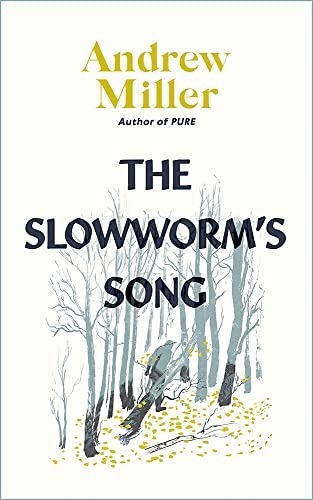
The Slowworm’s Song (Sceptre) by Andrew Miller
Stephen Rose, a former soldier who served in Northern Ireland and a recovering alcoholic, is haunted by his past. He lives a quiet life in Somerset, keeps his head down and works in a garden centre. Full of unspoken regret, he attempts to connect with Maggie, the adult daughter he barely knows, who lives in nearby Glastonbury.
The Slowworm’s Song, Andrew Miller’s ninth novel, is likely to win him further accolades. His 1997 debut Ingenious Pain was awarded the James Tait Black Memorial Prize for Fiction and the International IMPAC Dublin Literary Award, while 2011’s Pure won the Costa Book of the Year award. Bristol-born Miller now lives with his daughter in Somerset, where his latest work is mainly set. Nodding to the book’s themes, Miller has dedicated it to his own daughter and father – a Scotsman born in Belfast in 1925.
The book opens with a letter. Stephen’s fragile equilibrium is threatened when he is summoned to testify at an inquiry about an incident that took place in Northern Ireland in 1982. The letter is from Ambrose Carville, the “witness co-ordinator” of an organisation known as the Commission. Overwhelmed with anxiety, Stephen writes an account of his life as a record for his daughter. We learn of the early death of his mother and Stephen’s ill-fated decision, aged 19, to join the army, against his father’s Quaker beliefs. However, as Miller illustrates, Stephen’s prospects are limited. The army followed a brief spell at the local chicken processing plant. The grim environment is described in chilling detail: “In the killing rooms we dressed like trawler men expecting foul weather – boots, waterproofs, sou’westers. Water or blood or both ran off every surface . . . A rotating blade cut their throats, though some of the birds, seeing what was coming, lifted their head clear at the last moment.” Several memories such as this are dropped into Stephen’s account and appear to be incidental – but this is all part of Miller’s novelistic skill. Stephen merely escapes one world of violence for another.
After his tour of Northern Ireland ends in tragedy, Stephen’s army career is derailed. He eventually drifts to Bristol where he lives in a hippy squat, meets Evie and fathers a child. He is clearly traumatised but doesn’t know how to confront his demons, so he buries them. On his release from a spell in prison, he discovers Evie has left with their daughter and his descent into alcoholism begins.
Miller cut his teeth writing historical novels and this is clear in his depiction of army life in the early 1980s. Stephen’s training in Germany is well researched and portrayed, as is his regimented existence in Northern Ireland. He perfectly encapsulates Stephen’s frazzled nerves: “I was afraid I would drift apart, my limbs float off over the fields like zags of straw. By then, of course, I was full of strange imaginings. I was a house you would not want to visit. A house with an alarm going off in it.”
The warzone of 1980s Belfast is interwoven with evocative depictions of rural Somerset. Miller lovingly details smalltown life and descriptions of the local Quaker meetings which promote silent reflection. The title of the book is taken from a lyric in Quaker poet Basil Bunting’s Briggflatts. A slowworm burrows and hides itself, and Bunting uses this image to suggest the freedom of quiet contemplation. For Stephen, the lyric recalls an untroubled period as a child, a moment of innocence with his father, a time when he was “not already ruined”.
It’s surely no coincidence that The Slowworm’s Song is published so close to the 50th anniversary of Bloody Sunday. Miller weaves a profound and poignant tale about shame, trauma and the possibility of redemption. At the heart of the novel is one man’s attempts to circumvent the wreckage of his life, which Miller conveys sympathetically and with deep psychological insight. He keeps us guessing as to Stephen’s fate until the book’s final pages.
This piece is from the New Humanist autumn 2022 edition. Subscribe here.

